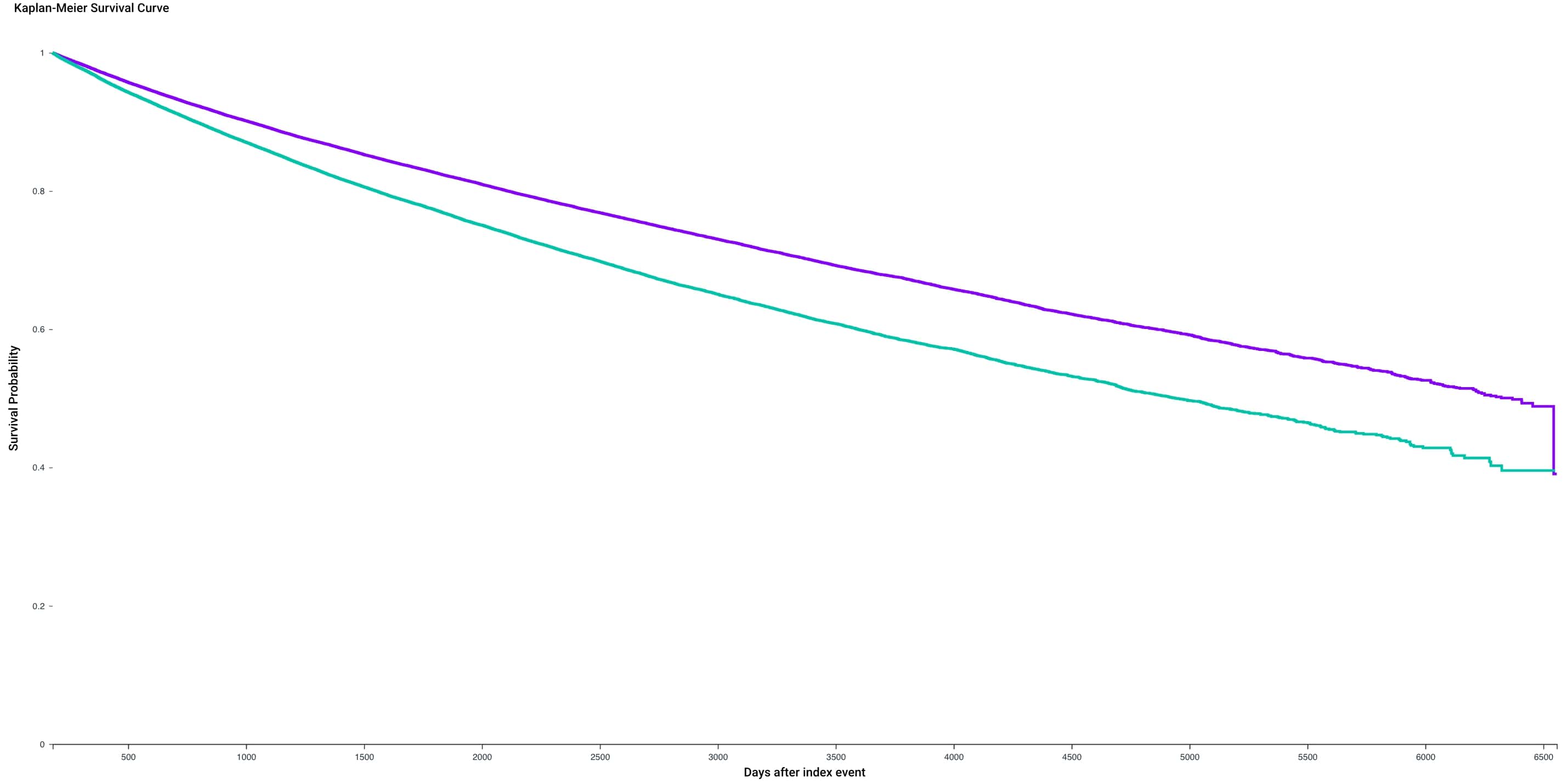Session Information
Session Type: Poster Session C
Session Time: 10:30AM-12:30PM
Background/Purpose: Carbamazepine has shown chondroprotective effects in OA animal models by modulating Nav1.7 channels. This study aimed to examine the association between Carbamazepine use and the risk of developing Osteoarthritis (OA). We hypothesized that Carbamazepine users would have a lower incidence of OA compared to matched controls.
Methods: The data for this retrospective cohort study were gathered from the aggregated electronic health records research network, TriNetX. Cohorts included patients aged 40 years or older with a history of using Carbamazepine and the control group consisted of patients with no history of exposure to Carbamazepine. Cohorts were matched through propensity score matching (PSM) for confounding variables known to influence OA risk, including age, sex, race, obesity, metabolic conditions, joint disorders, prior injury and use of cardiovascular or anti-inflammatory medications. Outcomes were assessed through risk ratio (RR), of the development of osteoarthritis at least 180 days after receiving carbamazepine.
Results: Among 385,903 patients in the initial Carbamazepine cohort, 174,970 patients remained post-PSM for the OA analysis (mean [SD] age, 67.8 [13.3] years; 77.1% female) and 174,970 in the matched control cohort (mean [SD] age, 68.3 [10.6] years; 76.5% female). In the osteoarthritis analysis, 37,746 patients were excluded in the Carbamazepine group and 42,867 patients were excluded from the control group for having the outcome prior to the study window. Osteoarthritis occurred in 20, 254 (14.8%) of the Carbamazepine group compared to 24,533 patients (18.6%) in the control group, yielding a risk ratio (RR) of 0.795 (95% CI, 0.781–0.808; p < 0.0001), indicating a statistically significant reduced risk of OA for Carbamazepine users.
Conclusion: This data highlights the potential for Carbamazepine to reduce the risk of developing OA. Using Carbamazepine to target chondrocytes appears to offer a promising treatment strategy in OA, and it calls for future clinical studies. This study highlights a potential role for carbamazepine as a preventative agent for OA and underscores the need for prospective clinical trials to validate this real-world observation.
 Figure 1. Kaplan-Meier curve comparing OA-free survival between Carbamazepine users and matched controls over time.
Figure 1. Kaplan-Meier curve comparing OA-free survival between Carbamazepine users and matched controls over time.
To cite this abstract in AMA style:
Afshar E, Long A. Does Carbamazepine Impact Risk of Developing Osteoarthritis? Results of a Real-World Data Analysis [abstract]. Arthritis Rheumatol. 2025; 77 (suppl 9). https://acrabstracts.org/abstract/does-carbamazepine-impact-risk-of-developing-osteoarthritis-results-of-a-real-world-data-analysis/. Accessed .« Back to ACR Convergence 2025
ACR Meeting Abstracts - https://acrabstracts.org/abstract/does-carbamazepine-impact-risk-of-developing-osteoarthritis-results-of-a-real-world-data-analysis/
